Taking care of a new baby also means taking care of yourself, and one of the first things you should do when you suspect you are pregnant is to visit your gynecologist or obstetrician for advice. However, if you find yourself at high-risk for complications during your pregnancy, then advice during your 9-month cycle is essential for keeping you and your newborn safe. As fetal medicine specialists, we can offer ways to ensure the best possible outcomes.
Our Six Tips For High-Risk Pregnancies
It can be disheartening to be diagnosed with a high-risk pregnancy, but being proactive about your healthcare means you’re taking the best measures to manage and protect your health and well-being. When you visit a maternal-fetal medicine specialist, they’ll be able to provide you with the best advice and healthcare tips for managing any conditions you may face and plan ahead for unexpected problems during pregnancy.
Here are some tips we recommend for those with high-risk pregnancies:
Stay Informed About Your Health: There are several factors that can be involved that could potentially harm your life and your baby. Understanding the risks associated with any medical conditions you have can have drastic consequences if you are not aware of or prepared to handle them. Speaking with your physicians, keeping track of your appointments, researching information about your conditions, and seeking out credible sources can help you manage your high-risk pregnancy.
Have a Healthy Support System: Surrounding yourself with friends, family, and loved ones during this time is especially important for your physical and mental health. Through your support system, they can help guide you through your pregnancy, allow you to express your concerns, and support you during your pregnancy.
Create a Pregnancy Plan with Your MFM Specialist: Getting a proactive care plan going for maternal care means attending all prenatal appointments and learning about your chosen hospital’s conditions and emergency care protocols when problems arise. Having a prenatal plan in place will ensure that both you and your healthcare providers understand the risks you face, and you can learn about the best options for delivery.
Monitor Your Medical Conditions: Any chronic medical conditions you face will need extra care and monitoring during your nine months of pregnancy. This includes changing medications to reduce the impact of your delivery, undergoing special prenatal tests, and keeping track of your lifestyle habits to make sure you stay healthy.
Listen To Your Body: Most of all, listening to your body is the best way to determine what you need most. Resting, tracking baby movements, eating healthy foods, taking supplements, and other habits are ways to manage your health, but listening to your body is one of the best ways to assure that you and your baby can be safe.
Manage Your Pregnancy with Maternal Fetal Medicine Specialists
If you have found these tips helpful, consider scheduling an appointment with your local maternal-fetal medicine specialist for more information, as they are the best support system you can have for managing high-risk pregnancies.

